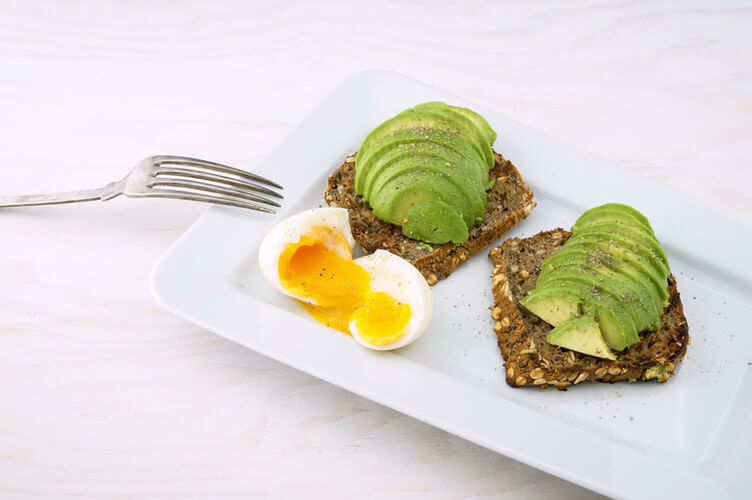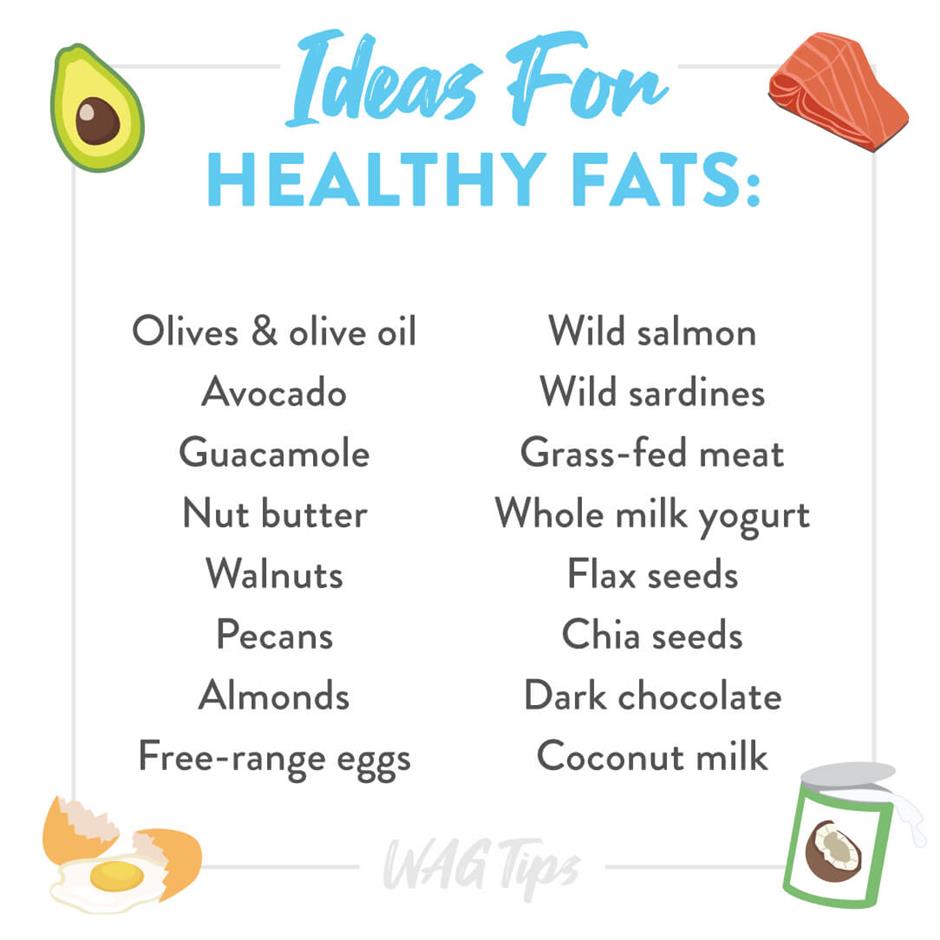
If you’re hoping to lose fat and change your body composition, you should avoid all fats, right? Wrong.
Like many parts of nutrition, it’s more complicated than that. In general, fat is a very important part of a healthy diet. In fact, you need fat for your body to function properly. Fats are essential for healthy hormones and cell repair.
Whether following a traditional macro balance or a keto (higher fat) diet, we want to make sure the fats we’re consuming are mainly heart-healthy ones.
But what is a healthy fat and how can we add more to our diets? Read on for information on types of fats and suggestions on how to add them to your daily meals.
Heart Health
Research suggests that the relationship between the fat we eat and our heart health isn’t about how much fat we eat as much as it is about the kind of fat we’re eating.[1] Much like other parts of a healthy lifestyle, the real key is to find a balance of many varieties of fat and enjoy them in moderation.
Advertisement
Trans Fats
Think about fried and processed foods when you think about trans fats. Trans fats are produced from the processing of liquid vegetable oils. This kind of fat is the kind that can lead to heart health problems, raising our bad (LDL) cholesterol levels while also lowering our good (HDL) cholesterol. It’s best to watch our intake of trans fats and try keeping them to a minimum.[1]
Saturated Fats
Saturated fats come from fatty meat, dairy and some vegetable oils, such as coconut oil. They are good for our hearts in small doses, but shouldn’t be relied on too heavily for our overall fat intake. While they do increase good (HDL) cholesterol, they also increase bad (LDL) levels. Enjoy saturated fats in conjunction with a diverse selection of foods.[1]
Unsaturated Fats
Advertisement
Most healthy fats are unsaturated. They are found in plant products such as seeds, nuts, and olive oil, along with some seafood. These are the kinds of fats that we want to include in our diet to support energy levels and longevity. They raise levels of good (HDL) cholesterol and help lower levels of bad (LDL) cholesterol.[1]

Protein
There are many protein options that also provide heart-healthy fats. Seafood provides a ton of omega-3 fats, especially salmon. Try some grass-fed beef to ensure your red meat is providing the type of fat you want. Or opt for darker meat from chicken to hit your daily goals.
Snacks
Advertisement
When you have midday munchies, fats can be a great option. Try some veggies and guacamole to help you stay focused on your tasks. Hard-boiled eggs are a great “grab and go” snack for both protein and fats. Cottage cheese and Greek yogurt can be portioned out to eat, or you can buy single-serve packs. Reach for olives for a satisfying treat. Combine some nut butters with fruit or just eat it right off your spoon!
Smoothies
Nuts and seeds are great options for adding fat without adding a lot of volume or bulk. Throw some chia seeds into your protein shake or finish off your smoothie with sliced almonds. Avocado works well as a base and a way to up those heart-healthy fats.
Delicious Add-ons
Try using fats to add flavor and diversity to your cooking. Throw nuts or seeds on salads or change things up with some added cheese. Sour cream can be added to many different foods, including chowders and soups. Grab some olive oil for cooking and add a new dimension to your meals. Dressings, sauces, and marinades are all additional ways we can add fat and flavor to salads, proteins, veggies and more.
Advertisement
Reading the Labels
As with other foods, make sure you double-check the ingredients of what you buy. Advertising on labels can be deceptive at times. Watch the macros—just because a label says “Zero added fat” doesn’t mean it doesn’t have other fats. And, as always, pay attention to serving sizes. A product may contain only 5 grams of fat per serving, but the whole package could contain several servings. Don’t let those grams sneak up on you!
Want some tips for your other macros? Check out our articles about adding easy carbs and adding easy protein to your daily meals!
References:
References:
- “Is the cholesterol in your food really a concern?” (2016, March 28). Penn Medicine Heart and Vascular Blog. Retrieved from https://www.pennmedicine.org/updates/blogs/heart-and-vascular-blog/2016/april/is-the-cholesterol-in-your-food-really-a-concern
Schedule a Free Intro Call
Working Against Gravity has led the macro tracking and health space for over a decade. Our team doesn’t just understand the science of nutrition—we’ve spent years mastering the art of tailoring it to fit your life. That means no cookie-cutter plans, just real strategies that have worked for over 30,000 people.
Schedule a free call with our team to learn how working with a 1-on-1 WAG coach will help you reach your goals.



